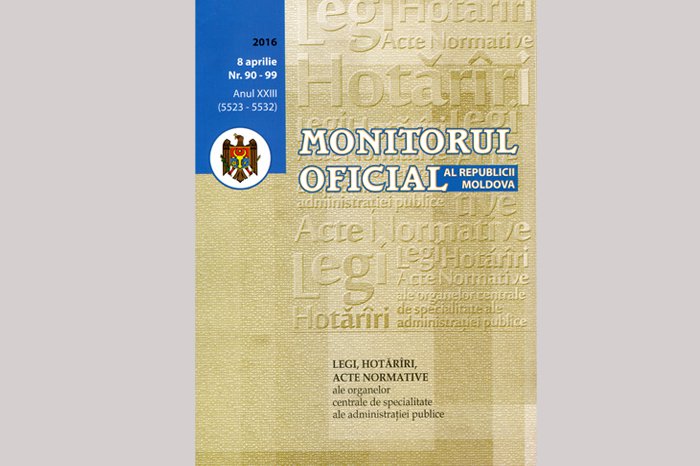Law on change of electoral system published in Moldova's Official Journal
09:59 | 21.07.2017 Category: Political
Chisinau, 21 July /MOLDPRES/ - The law on the change of the electoral system was published in the Official Journal of Moldova (Monitorul Oficial) today.
Under the document, 51 MPs will be elected on party lists and another 50 – based on the uninominal vote. The electoral districts will be set up by an independent commission, made up of representatives of all parliamentary and extra-parliamentary political parties, experts demographers, geographers, representatives of the academic environment, civil society, local public authorities, Central Electoral Commission, national minorities and of the People’s Assembly of the Autonomous Territorial Unit of Gagauzia. The decisions on the creation of the uninominal electoral districts will be published in the Official Journal one year before the polls.
To run for a seat in parliament, the electoral contenders will be obliged to make public their wealth and present a certificate of integrity, due to be issued by the National Integrity Agency. At the same time, the law provides for the diminution of the ceiling of candidates’ financial contribution to 50 average salaries for private persons and 100 average salaries for legal entities.
Also, to promote women in politics, according to Moldova’s international commitments and Venice Commission’s recommendations, the parties which will keep the present quota of 40 per cent also for the uninominal districts will benefit from a budgetary financial increase of at least ten per cent, which, according to a coefficient, will rise with each woman elected in parliament. Also, the number of signatures necessary for the registration of a woman candidate against a man candidate is cut by a half.
On 5 May 2017, the MPs approved, in the first reading, the initiatives on the introduction of the uninominal system and the mixed voting system. According to the legislative procedure, the two initiatives were merged and subsequently considered by experts of the Venice Commission. At the same time, seven discussions on parliamentary platform were organized, with the participation of more than 100 representatives of parliamentary and extra-parliamentary parties, civil society, experts, jurists and public institutions involved in the organization of polls.
(Reporter A. Plitoc, editor M. Jantovan)

